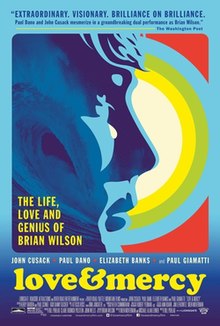 Director: Judd Apatow (also producer)
Director: Judd Apatow (also producer)Genre: Romantic Comedy
Starring: Amy Schumer, (also screenwriter), Bill Hader, Lebron James, Brie Larson, Tilda Swinton
Distributed by: Universal Pictures
Release Date: July 17, 2015
My Rating: 8.5/10
I have always been a fan of Judd Apatow's trademark brand of humor, even though I would be lying if I said he doesn't usually tend to zero-in on the same types of characters: aimless losers and vagabonds who are ultimately revealed to possess a sympathetic demeanor.
In his latest film, Trainwreck, we are introduced to Amy Townsend (Schumer), a thirty-something trashy New Yorker who has spent years living a messy existence filled with the same pattern: becoming highly intoxicated, having casual sex with different men, and then drinking more and even getting stoned to numb the pain and embarrassment of the fling from the night before. Amy's fear of genuine commitment to a relationship derives from her father (veteran SNL writer Colin Quinn) brainwashing her and her sister Kim at a very young age after he and their mother get divorced. Amy's father creates the adage: "Monogamy isn't realistic."
Thus, Amy continues to engage in one-night stands, all while dating superficial, fitness-obsessed muscle-man Steven (John Cena), who angrily dumps her after she tells him that they were never 'exclusive'. Following yet another walk of shame to her job at a men's magazine called "S'Nuff," a male staff writer named Bryson pitches a feature article about a young sports surgeon on the rise named Aaron Conners (Hader) at a staff meeting. Although the magazine's editor-in-chief Dianna (Swinton) loves the idea, she assigns the piece to Amy rather than Bryson because she knows Amy detests sports and thinks the opposition would be great.
Grudgingly, Amy begins her assignment by attempting to find out as much as she can about Conners, who is clearly a well-intentioned man, and just sees this as a duty. One night, Amy has a fling with the doctor and after several casual dates, begins a relationship with him. However, it is clear Conners is more enamored with her than she is with him, despite his knowledge of her previous lifestyle. Amy struggles to maintain an unbiased view of her piece's subject as well as approval from her editor, all while periodically supervising her cantankerous father at a local nursing home.
The script is laden with crass jokes and one-liners, and Schumer (who wrote the script) does not appear to shy away from her ease with discussing sexual mishaps, bodily flaws, and pot addiction. The ending is supremely predictable, and a plethora of contemporary romantic comedy clichés abound, including the much-more prim-and-proper younger sister (Larson) and family woman with a precocious child, who seems to make Amy look even worse by leading such a conventional life, the lead male's asinine best friend,--who in this case happens to be superstar Lebron James in a surprisingly hilarious turn as himself--and the dictatorial, uncompromising, and merciless boss who, surprise-surprise! nearly forces the mess of a protagonist to choose between her career and her new boyfriend. There's even a brief, out-of-place Woody Allen reference and a scene involving Schumer performing a goofy dance routine to a classic Billy Joel song (I won't say which one). The cameos of major sports stars like Lebron and Amar'e Stoudemire and cackle-inducing hi-jinks involving medical malpractice on these renown stars, along with Hader's character's occasionally awkward behavior, round out the picture.
So why did I like this film, despite all these trite comedy characters and scenarios? Because Amy Schumer presents a no-holds-barred picture of a woman who seems utterly lost in her life, and because the few moments of pathos that are seamlessly woven into the storyline seem authentic rather than forced, and even they are injected with a very low dose of laughter. Plus, her ability to make other people uncomfortable with her explicit sexual descriptions was also hilarious, even though many will surely find it disturbing. Also, even though the ending is a happy one, it leaves some unanswered questions.
It's strange, yet refreshing to see Hader act normal and use his real voice after being accustomed to hearing him take on so many cartoonish ones for his repertoire of characters on Saturday Night Live, from the blunt, sexist, senile reporter Herb Welch to horny Italian TV-host Vinny Vedecci, to gay, sketchy-club-hopping New York City correspondent Stefon. He and Schumer display strong chemistry from beginning to end. Lebron James is hysterical as he spouts nonsense analogies with his basketball career and spontaneously quotes Kanye as a means to provide his best friend with advice, and SNL player Vanessa Bayer also draws chuckles as Schumer's perennially-smiling, harmless friend and co-worker.
I don't know if monogamy is realistic or not, but Amy Schumer delves deep into a persona that we're all familiar with and proves that these trashy, disastrous types of women can redeem themselves if they just genuinely try. Nothing is downplayed in this story, and that's just great.
